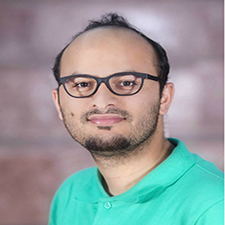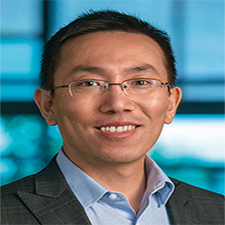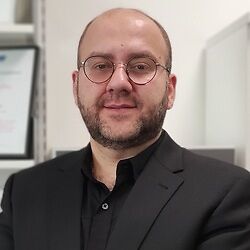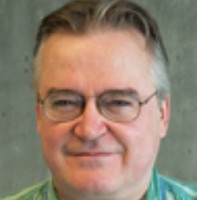Proceedings of the 5th International Conference
on Theoretical and Applied Nanoscience and Nanotechnology (TANN'21)
May 23 - 25, 2021 | Niagara Falls, Canada
Virtual Conference
The keynote information for the 5th International Conference of Theoretical and Applied Nanoscience and Nanotechnology (TANN'21) is as follows:

Dr. Sihong Wang
University of Chicago, USA

Dr. Qammer Abbasi
University of Glasgow, UK

Dr. Liang Feng
University of Pennsylvania, USA

Dr. Mohsen Rahmani
Nottingham Trent University, UK

Dr. Roger Newman
University of Toronto, Canada
TANN'21 Plenary Speaker

Dr. Sihong Wang
University of Chicago, USA
Sihong Wang is an Assistant Professor in the Pritzker School of Molecular Engineering at the University of Chicago, USA. He received his Ph.D. degree in Materials Science and Engineering from the Georgia Institute of Technology in 2014 under the supervision of Prof. Zhong Lin Wang, and his Bachelor’s degree from Tsinghua University in 2009. From 2015 to 2018, he was a postdoctoral fellow with Prof. Zhenan Bao in Chemical Engineering at Stanford University. He has published over 60 papers in numerous high-impact journals, including Nature, Science, Nature Materials, Nature Electronics, Nature Communications, Science Advances, Advanced Materials, Energy & Environmental Science, etc. His research group currently focuses on soft polymeric bioelectronic materials and devices as the new generation of technology for biomedical studies and practices. As of March 2021, his research has been cited more than 14,200 times and he has an H-index of 54. He was recognized as a Highly Cited Researcher by Clarivate Analytics in 2020, and was awarded MIT Technology Review 35 Innovators Under 35 (TR35 Global List), MRS Graduate Student Award, Chinese Government Award for Outstanding Students Abroad, Top 10 Breakthroughs of 2012 by Physics World, etc.
Topic of Keynote: Material and Device Designs in Biomimetic Polymer Electronics

Dr. Qammer Abbasi
University of Glasgow, UK
Qammer H. Abbasi, received his BSc and MSc degree in electronics and telecommunication engineering from University of Engineering and Technology (UET), Lahore, Pakistan (with distinction). He received his Ph.D. degree in Electronic and Electrical engineering from Queen Mary University of London (QMUL), U.K., in Jan., 2012. From 2012 to June 2012, he was Post-Doctoral Research Assistant in Antenna and Electromagnetics group, QMUL, UK. From 2012 to 2013, he was international young scientist under National Science Foundation China (NSFC), and Assistant Professor in University of Engineering and Technology (UET), KSK, Lahore. From August, 2013 to April 2017 he was with the Center for Remote healthcare Technology and Wireless Research Group, Department of Electrical and Computer Engineering, Texas A &M University (TAMUQ) initially as an Assistant Research Scientist and later was promoted to an Associate Research Scientist and Visiting lecture where he was leading multiple Qatar national research foundation grants. Currently Dr. Abbasi is a Senior Lecturer (Associate Professor) in James Watt school of engineering at University of Glasgow in addition to Visiting Lecturer with Queen Mary, University of London (QMUL). He has been mentoring several undergraduate, graduate students and postdocs. Dr. Abbasi has research portfolio of around £5 million and contributed to a patent, 7 books and more than 300 leading international technical journal and peer reviewed conference papers and received several recognitions for his research. Dr. Abbasi is an IEEE senior member and was Chair of IEEE young professional affinity group. He is an Associate editor for IEEE Journal of Electromagnetics, RF, and Microwaves in Medicine and Biology, IEEE Sensors, IEEE open access Antenna and Propagation and IEEE Access journal and acted as a guest editor for numerous special issues in top notch journals. He is a member of IET and commitee member for IET Antenna & Propagation and healthcare network. Dr. Abbasi has been a member of the technical program committees of several IEEE flagship conferences and technical reviewer for several IEEE and top notch journals including TPC chair for 4th international UCET conference 2019 and executive chair for 5th international UCET conference 2020. He contributed in organizing several IEEE conferences, workshop and special sessions in addition to European school of antenna course. He received several recognitions for his research, which includes appearance in BBC, STV, dawnnews, local and international newspaper, cover of MDPI journal, most downloaded articles, UK exceptional talent endorsement by Royal academy of Engineering, National talent pool award by Pakistan, International Young Scientist Award by NSFC China, URSI Young Scientist award, National interest waiver by USA, 4 best paper awards and best representative image of an outcome by QNRF. His research interests include nano communication, internet of things, RF design and radio propagation, biomedical applications of millimeter and terahertz communication, wearable and flexible sensors, compact antenna design for 5G and beyond, antenna interaction with human body, Implants, body centric wireless communication issues, wireless body sensor networks, non-invasive health care solutions, physical layer security for wearable/implant communication.
Webpage:https://www.gla.ac.uk/schools/engineering/staff/qammerabbasi/
Topic of Keynote: Nanoscale Future Healthcare using Terahertz

Dr. Liang Feng
University of Pennsylvania, USA
Liang Feng is an Associate Professor of Materials Science & Engineering (MSE) and Electrical and Systems Engineering (ESE) at the University of Pennsylvania. He received his Ph.D. in Electrical Engineering from UCSD in 2010, and was subsequently a postdoc researcher in the Department of Electrical Engineering at California Institute of Technology and NSF Nanoscale Science and Technology Center at UC Berkeley. Prior to joining Penn in 2017, he was an assistant professor of SUNY Buffalo from 2014 to 2017. Currently his research interests include optical and photonic materials, quantum optics, nanophotonics, and optoelectronics. He has authored and coauthored 77 papers in Science, Nature Materials, Nature Photonics, PRL, etc. He is an OSA fellow and a recipient of Sloan Research Fellow, NSF CAREER and ARO Young Investigator awards.
Topic of Keynote: Symmetry Driven Photonics for New Active Functionality On-Chip

Dr. Mohsen Rahmani
Nottingham Trent University, UK
Mohsen Rahmani is an Associate Professor at Nottingham Trent University. His research activities span over light-matter interactions with various subwavelength nanoparticles for applications in flat optics, near-infrared imaging, bio-sensing, etc. He has obtained his PhD from the National University of Singapore in 2013, followed by postdoc fellowship at Imperial College London, and the Australian Research Council Early Career Fellowship at the Australian National University (ANU). In 2020, he has moved to the Nottingham Trent University as a Royal Society Wolfson Fellow, and has recently been awarded by the UK Research and Innovation Fellowship. Associate Professor Rahmani has delivered 20+ invited talks, seminars and keynotes in international conferences, and has published more than 60 peer-reviewed journal papers (H-index=31). He is the recipient of several prestigious awards and prizes including the Australian Eureka Prize, Early Career Medal from the International Union of Pure and Applied Physics, and the Australian Optical Society Geoff Opat Award. In 2020 he has been promoted to the senior member of Optical Society of America and IEEE.
Topic of Keynote: Metasurfaces: New Generation Building Blocks For Emerging Optics

Dr. Roger Newman
University of Toronto, Canada
Roger Newman has been a Professor in the Department of Chemical Engineering and Applied Chemistry at the University of Toronto since 2004. Before that, he spent 20 years as an academic in Manchester, UK, and also spent some years at Brookhaven National Laboratory. His main research specialty is metallic corrosion, but ever since the 80s, he has had an activity in nanomaterials, specifically nanoporous metals, which are created by a kind of electrochemical corrosion process. He has received a number of international awards and Fellowships for corrosion research.
Topic of Keynote: Advanced Characterization and Modification of Nanoporous Metals